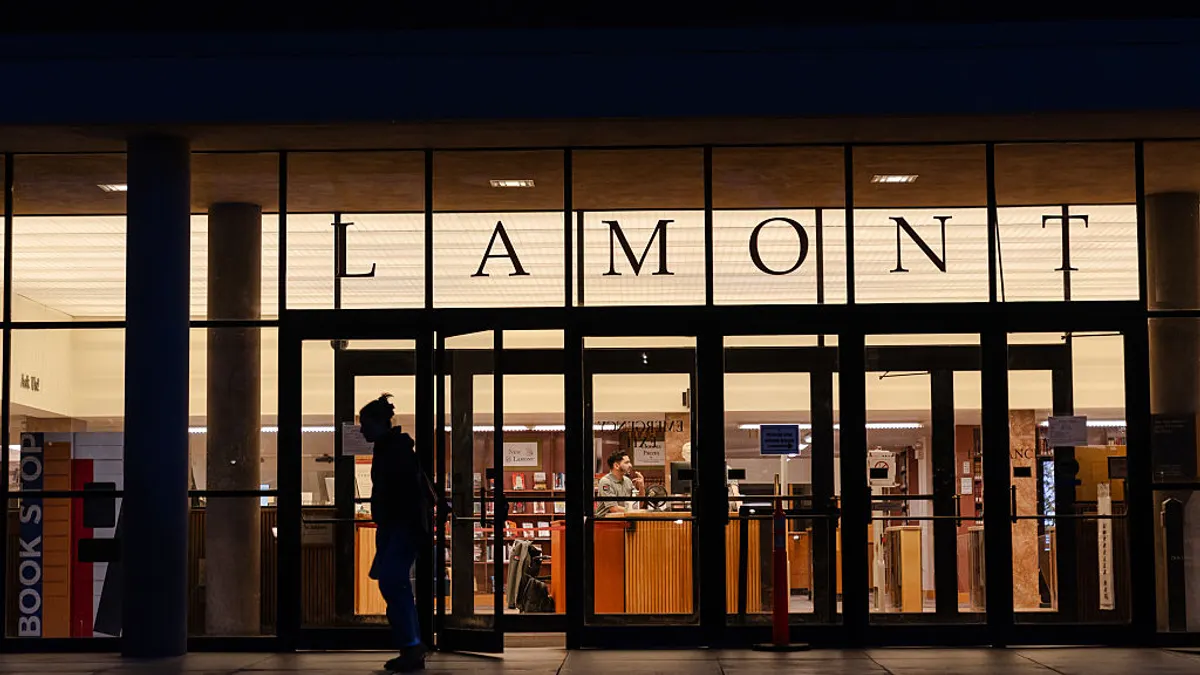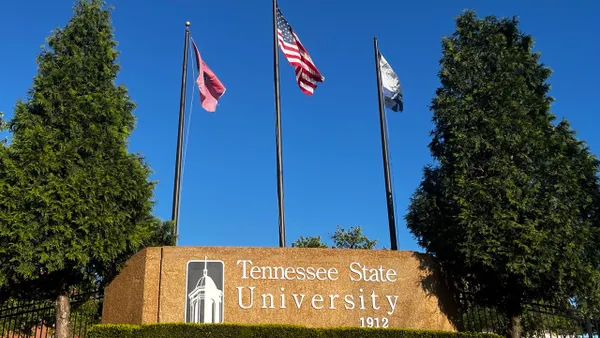Dive Brief:
- Most international students studied in-person this spring at more than half of 414 colleges and universities surveyed by the Institute of International Education.
- Applications from this group are up at 43% of responding colleges for the next academic year, nearly double the share saying so a year ago.
- International students could still face hurdles reaching the U.S., including delays in visa processing and uncertain vaccination protocols at colleges.
Dive Insight:
Colleges have provided flexibility and a range of support to international students during the pandemic, IIE found.
Eight in 10 respondents said they enrolled international students in face-to-face and online classes this spring, and the vast majority of schools said these students took at least one virtual course. Respondents said they have adapted advising and course schedules to accommodate international students.
Meanwhile, the share of colleges offering this cohort emergency funding increased from spring 2020, as did their communications to these students on health and wellbeing. A larger share of respondents also said they were allowing electronic signatures on documentation for students' visas.
Looking ahead to fall, no respondents said they planned to offer only online instruction, and 90% said they'd offer international students an in-person study option in the U.S. This is critical for recruiting international students, as current guidance requires new students to be in a program with an in-person learning requirement in order to enter the U.S.
Of the 90% of respondents who promised a face-to-face option for international students, more than half were schools planning a mix of in-person and online classes, while a third plan to provide only in-person courses for them.
Federal agencies have loosened and clarified restrictions on international students, changes that could give colleges more confidence that they will be able to enroll here this fall. Higher education groups have also asked them to address delays in visa processing, including by streamlining the process.
Vaccination protocols could be a hurdle, given that students outside the country may have received shots not approved for use in the U.S. Nearly two-thirds of respondents said they will offer vaccines on campus, and just under half said they don't plan to require vaccinations before a student gets to campus. Schools may opt to consider students with vaccines approved by the World Health Organization as vaccinated, The New York Times reported. Scientists and colleges are still exploring how to address students who got a vaccine that's not WHO-approved.
Students who can't make it to the U.S. will be offered the option to defer to spring 2022 at more than three-quarters of responding schools, IIE's survey found. And just under half said they would allow international students to enroll online until they could come to campus.












